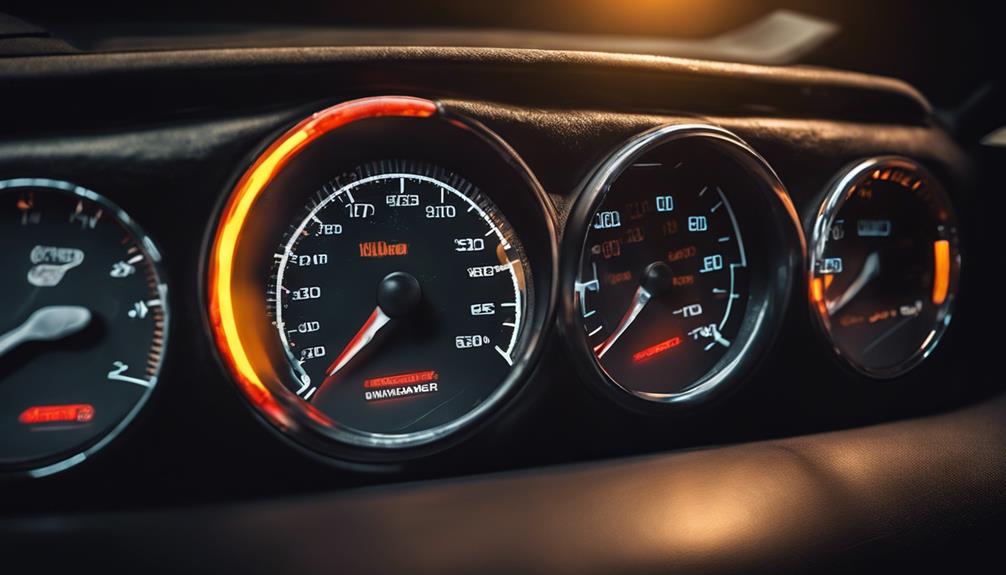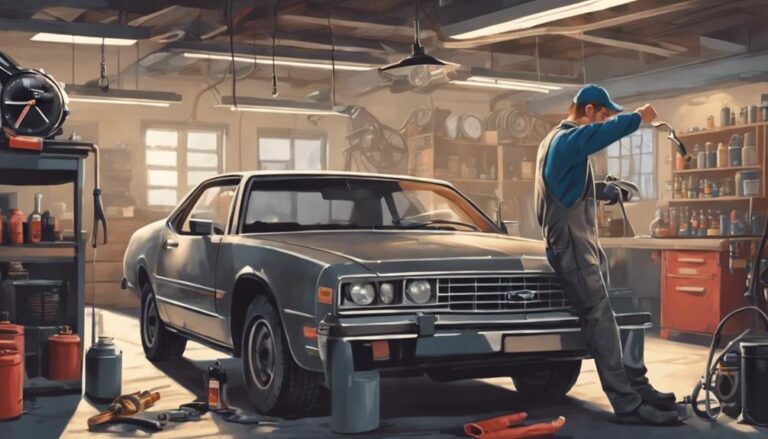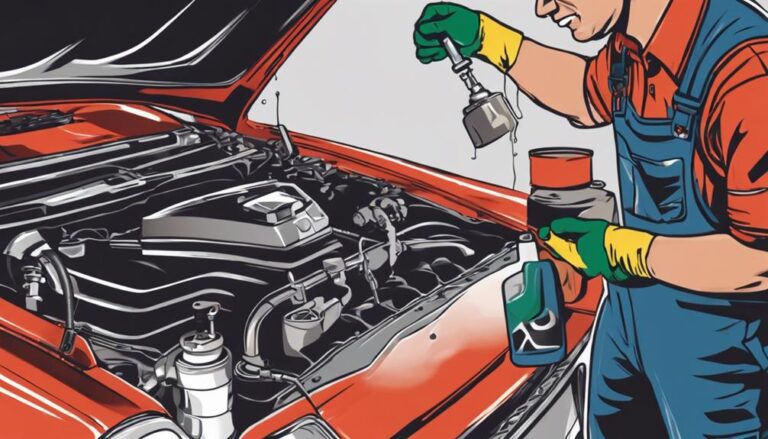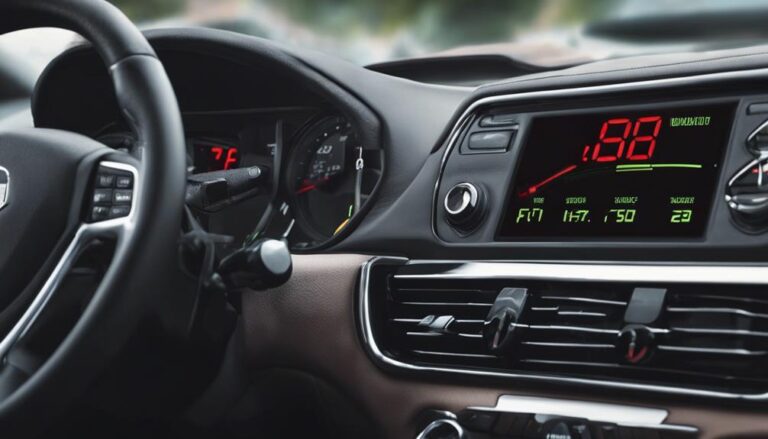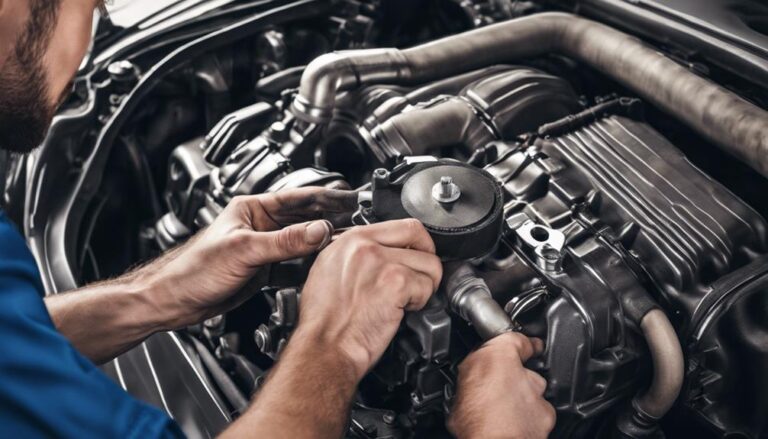5 Clear Signs Your Car Needs Oil Change & Filter Replacement
When it comes to maintaining your car, the saying 'an ounce of prevention is worth a pound of cure' rings true. But how do you know when it's time for an oil change and filter replacement? Pay attention to these five clear signs that your car might be overdue for some maintenance.
From unusual engine sounds to smoke from the exhaust, your vehicle might be trying to tell you something important. Stay tuned to uncover these signs that could save you from potential engine troubles down the road.
Key Takeaways
- Unusual engine noises indicate potential oil change needs for optimal performance.
- Dirty or gritty oil leads to engine damage; timely changes maintain health.
- Monitoring oil levels prevents friction and engine issues, ensuring smooth operation.
- Dashboard alerts and exhaust smoke serve as crucial indicators for oil and filter maintenance.
Unusual Engine Sounds
If you hear knocking or ticking coming from your engine, it's a clear sign that your car may need an oil change and filter replacement. Unusual engine sounds like these can indicate issues with lubrication, affecting engine performance.
Following your maintenance schedule is crucial to ensuring your engine operates smoothly. Ignoring these sounds could lead to engine damage, reducing performance and potentially causing costly repairs.
Metallic or grinding noises could signal contaminated oil, which can harm engine components. Timely action is key to preventing further damage and maintaining optimal engine health.
Dirty or Grimy Oil
Contaminated oil with a gritty or grainy consistency can indicate potential engine damage and reduced lubrication properties. When your oil is dirty or grimy, it's crucial to address the issue promptly to avoid further complications. Here are some key points to consider:
- Increased Friction: Contaminated oil can lead to increased friction between moving parts in the engine, causing accelerated wear on critical components.
- Poor Engine Performance: Gritty or grainy oil can result in poor engine performance, including reduced fuel efficiency and power output.
- Overheating Issues: The presence of contaminants in the oil can impede proper lubrication, leading to overheating problems within the engine.
Monitoring the quality of your oil is essential to prevent oil contamination and potential engine damage. Regular oil changes are vital to maintaining a clean and well-lubricated engine, ensuring optimal performance and longevity.
Low Oil Level
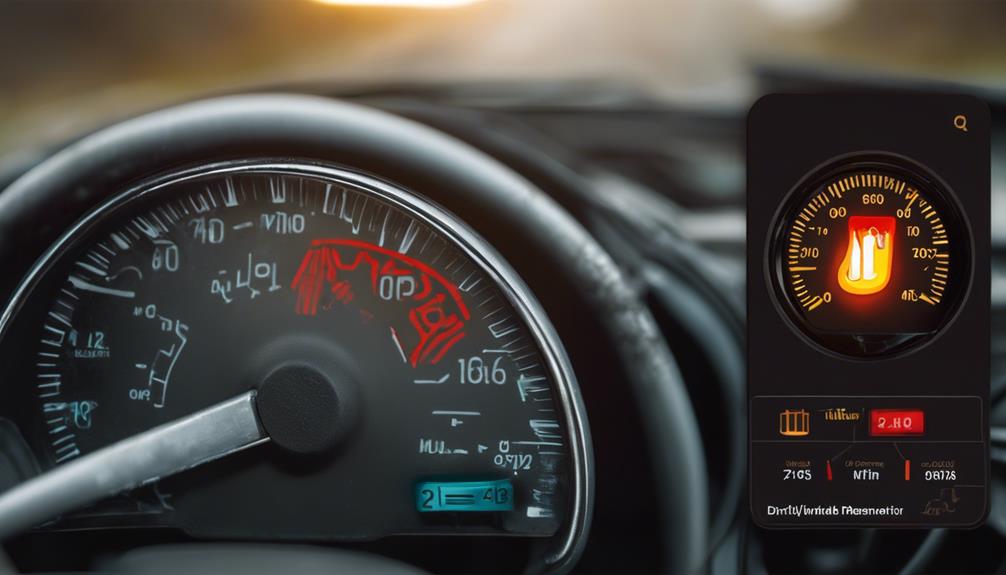
Maintaining proper oil levels in your vehicle is crucial for preventing engine damage and ensuring smooth operation. Low oil levels can lead to reduced lubrication, resulting in increased friction among engine components and potentially causing damage to vital parts.
Checking your oil levels regularly is essential to detect any decrease in oil volume promptly. If you notice a low oil level, it could be due to leaks in the system, burning oil, or neglecting timely oil changes. Detecting oil leaks early on is crucial to prevent further oil loss and potential engine issues.
Dashboard Warning Lights
Dashboard warning lights serve as crucial indicators for your vehicle's maintenance needs, including the necessity for an oil change and filter replacement. Keeping an eye on these signals is vital for maintaining your car's health and performance.
Here are some key points to consider:
- Maintenance Schedule: Dashboard warning lights often remind you of the required maintenance schedule, which may include oil changes and filter replacements.
- Oil Quality: Some warning indicators are related to oil quality. Ignoring these lights can lead to poor engine performance and potential damage.
- Engine Performance: Timely response to dashboard alerts ensures optimal engine performance. Ignoring these warnings can result in costly repairs and decreased longevity of your vehicle.
Smoke From Exhaust

If you notice smoke coming from your exhaust, it could indicate a need for an oil change and filter replacement. Different colored exhaust smoke such as blue, white, or black can be a sign of various engine issues related to oil.
Blue smoke typically means burning oil, white smoke could suggest coolant leakage, and black smoke may point to a rich fuel mixture or dirty oil. Engage in engine diagnostics to pinpoint the root cause promptly.
Addressing smoke from the exhaust promptly is crucial to prevent potential engine damage and ensure optimal vehicle performance. Regular oil changes and filter replacements play a vital role in reducing the likelihood of observing smoke from the exhaust.
Keep your exhaust system in check through periodic maintenance to avoid more severe problems down the road. Remember, staying on top of engine diagnostics and maintaining your exhaust system can help keep your vehicle running smoothly.
Frequently Asked Questions
How Do I Know if My Car Needs a New Oil Filter?
If you're unsure, watch for reduced engine performance and strange noises. A clogged oil filter can cause issues. Ensure oil filter efficiency by replacing it every 5,000-8,000 km along with your oil change. Your car deserves it.
What Happens if You Change Oil Without Changing Filter?
If you change oil without replacing the filter, filter efficiency decreases, leading to recirculation of contaminants in the engine. This impacts performance and longevity. Don't fall for maintenance misconceptions; always prioritize both oil and filter changes.
What Are the Symptoms of Dirty Engine Oil?
If you suspect dirty engine oil, watch for poor engine performance and dark, gritty oil. Maintain your maintenance schedule to prevent damage. Warning lights or an oil analysis can help confirm issues. Keep your engine healthy!
How Long Can You Drive Without Changing Oil Filter?
Thinking you can stretch out oil filter intervals? Bad idea. Regular maintenance schedule is key. Extended intervals can harm your engine. Don't skimp on this crucial step for engine health and longevity.
Conclusion
In conclusion, staying vigilant about your car's oil and filter needs is vital for its health and performance. While some may view oil changes as a hassle, neglecting these crucial maintenance tasks can lead to costly engine damage.
By addressing the signs early on, you can avoid major issues and keep your vehicle running smoothly. Remember, a little maintenance goes a long way in ensuring your car's longevity and reliability.

